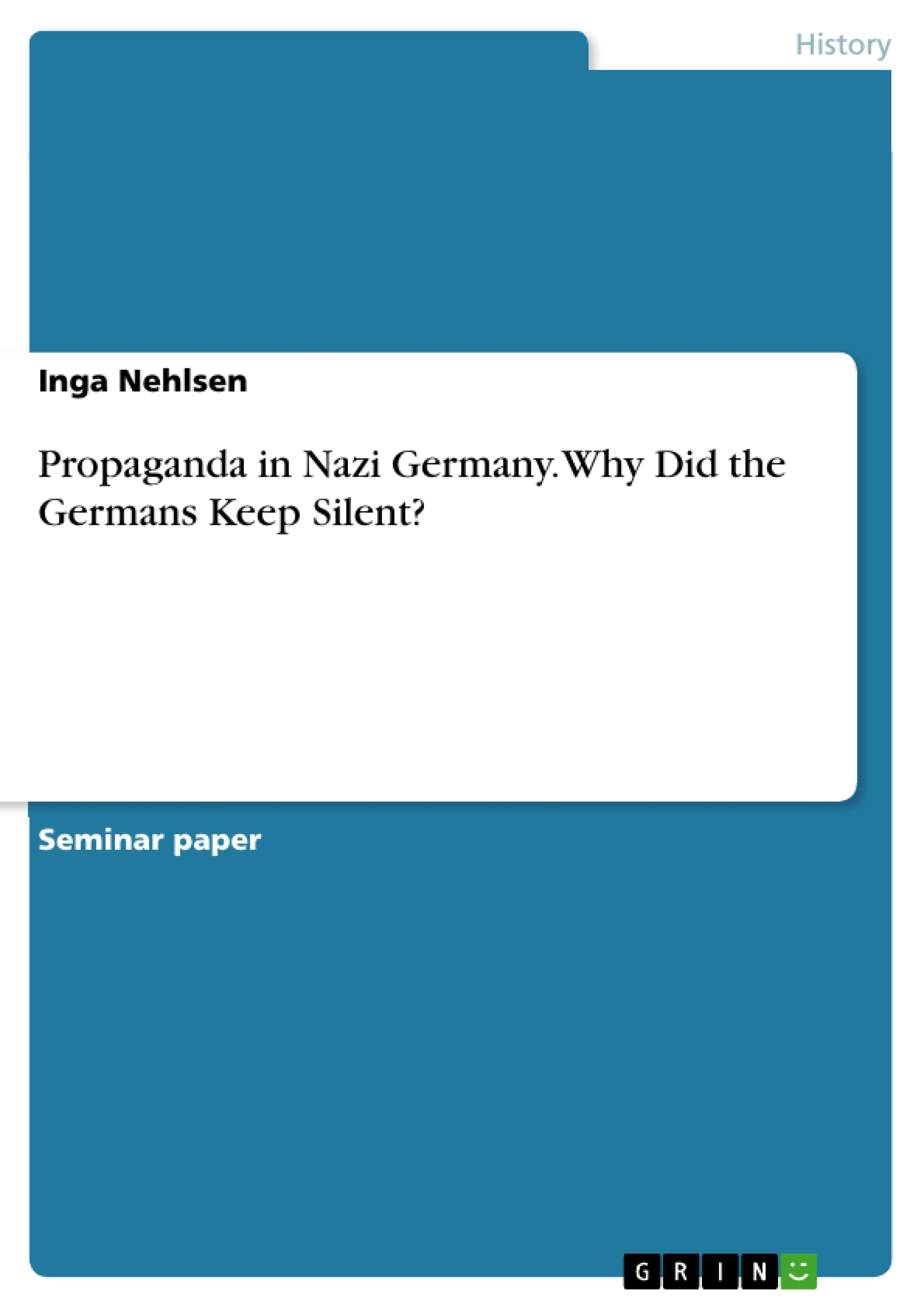The essay deals with the reasons for and two major concepts of Nazi propaganda, trying to answer the questions “Why was there so little resistance against the discriminative actions of the Nazis, especially against their genocide of the Jews? How did the Nazi regime manage to convince people of the alleged righteousness and necessity of eliminating the Jewish race?”. The situation at the end of the Weimar Republic plays an important role in the success of the Nazi propaganda. Key concepts of this propaganda were the creation of a common enemy (the Jews) and a ‘people’s community’ to tie the population together against this enemy. However it must be stated that a comprehensive attempt to answer the question of “How could it happen?” would have to include various other aspects and that there will still remain unresolved questions.
Inhaltsverzeichnis (Table of Contents)
- Introduction
- The basis for National Socialism
- Creating a national enemy
- Creating a 'people's community'
- Conclusion
Zielsetzung und Themenschwerpunkte (Objectives and Key Themes)
This essay examines the reasons for and major concepts of Nazi propaganda, particularly focusing on the lack of resistance to Nazi policies and the effectiveness of their messaging, especially regarding the genocide of the Jews. It seeks to answer the question: "Why was there so little resistance against the discriminative actions of the Nazis, especially against their genocide of the Jews? How did the Nazi regime manage to convince people of the alleged righteousness and necessity of eliminating the Jewish race?".
- The role of the Weimar Republic's instability and the aftermath of World War I in fostering a receptive environment for Nazi propaganda.
- The Nazi strategy of creating a common enemy (the Jews) and a unified 'people's community' to promote acceptance of their ideology.
- The utilization of scapegoating, fearmongering, and the portrayal of Jews as a threat to German national identity and economic prosperity.
- The interplay of propaganda, social and economic factors, and the psychological impact of fear and uncertainty in shaping public opinion and encouraging acquiescence to Nazi policies.
- The limitations of this analysis, acknowledging the complexity of the topic and the need for a more comprehensive examination of the factors contributing to the rise of the Nazi regime.
Zusammenfassung der Kapitel (Chapter Summaries)
- Introduction: This chapter outlines the core question explored in the essay: the lack of resistance to the Nazi regime and its ideology, particularly regarding the genocide of the Jews. It emphasizes the role of propaganda in achieving this acceptance and introduces the key concepts investigated in subsequent chapters.
- The basis for National Socialism: This chapter examines the historical and social context that contributed to the rise of National Socialism in Germany. It highlights the economic hardship, political instability, and widespread dissatisfaction within the German population following World War I and the Treaty of Versailles. The chapter emphasizes the role of the Nazi Party in capitalizing on these grievances and offering solutions through promises of national renewal and economic recovery.
- Creating a national enemy: This chapter explores the Nazi strategy of creating a common enemy, the Jews, as a scapegoat for Germany's problems. It analyzes how the Nazis utilized propaganda to portray Jews as a threat to German identity, culture, and economic well-being, thereby justifying their policies of discrimination and persecution.
Schlüsselwörter (Keywords)
The core keywords of this essay are Nazi propaganda, resistance, antisemitism, scapegoating, 'people's community', Weimar Republic, World War I, economic hardship, national identity, and genocide.
- Quote paper
- Inga Nehlsen (Author), 2011, Propaganda in Nazi Germany. Why Did the Germans Keep Silent?, Munich, GRIN Verlag, https://www.hausarbeiten.de/document/303445


